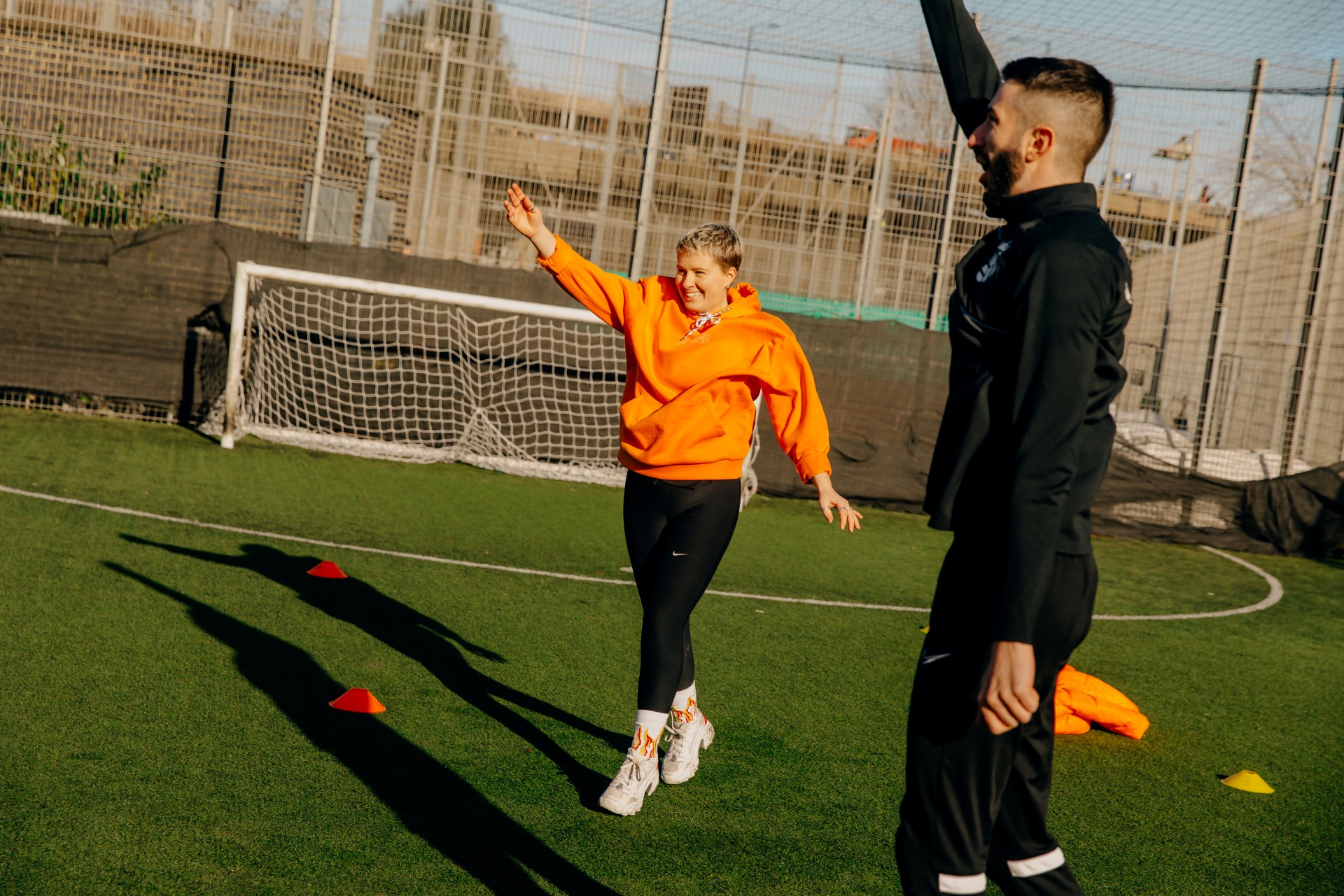Creating a Healthy Relationship with Exercise
PMAC UK is a UK based organisation of mental health and wellbeing trainers providing psychologically-informed workplace training to businesses in the UK.
They share informative research on the interconnectedness of physical activity and mental health and tips on creating a healthy relationship with exercise, the boost we all could do with through these winter months.
Exercise for Reduced Levels of Loneliness
Exercise also offers a fantastic avenue for social connection. Physical activity provides ample opportunities to engage with others, whether you’re joining a local sports team, participating in a fitness class, or simply going for a walk with a friend. These social connections formed through exercise play a vital role in combating feelings of loneliness and isolation, which are significant contributors to mental health challenges.
Research consistently shows that nurturing social bonds through physical activity can immensely affect mental well-being. These interactions provide a sense of belonging and support and offer opportunities for laughter, camaraderie, and shared experiences—all of which contribute to a happier, more fulfilling life.
The Benefit of Goal Setting
No matter how intense, regular exercise is also a powerful catalyst for enhancing self-esteem and confidence. Setting and achieving fitness goals, whether it’s conquering a personal best in a run, mastering a new fitness skill, or simply staying committed to a regular exercise routine, can instil a profound sense of accomplishment.
When you push yourself to reach new milestones in your fitness journey, you’re not just transforming your body; you’re also cultivating resilience and belief in your capabilities. Every step toward your fitness goals reaffirms your strength, determination, and ability to overcome challenges. As you witness your progress firsthand, you’ll find yourself standing a little taller, feeling a little prouder, and embracing a newfound confidence in all aspects of your life.
The Benefits of Exercise for Mental Health
Have you ever noticed that after a brisk walk or a satisfying workout, your mind feels clearer, and your mood is lifted? It’s not just a coincidence; science tells us there’s a profound link between physical activity and mental well-being. In today’s world, where stress and anxiety seem to lurk around every corner, incorporating exercise into your routine can be a game-changer for your mental health.
While exercise undoubtedly benefits cardiovascular health, strength, and the well-being of our muscles and joints, its benefits extend far beyond the physical. Physical activity is a potent mood enhancer capable of alleviating symptoms associated with depression and anxiety.
When you exercise, your body releases a cascade of chemicals, including endorphins and serotonin. These chemicals play pivotal roles in enhancing mood, diminishing stress levels, and fostering an overall sense of well-being.
Exercise for Improved Cognitive Function
Regular exercise, be it an hour in the gym, pool, or a gentle jog around the block, can also supercharge your cognitive abilities. Exercise has been shown to enhance cognitive function, sharpening memory and thinking skills. The increased blood flow to your brain during workouts not only delivers essential nutrients but also safeguards your mental faculties as you age.
These benefits also extend to your sleep quality as well. A consistent exercise routine helps regulate your sleep patterns, ensuring you enjoy restorative rest each night. And we all know that a good night’s sleep is paramount for mental well-being, influencing everything from your mood and energy levels to your overall cognitive function. So, by prioritising exercise, you’re not just investing in your physical health—you’re also nurturing a sharper mind and better sleep habits, as well as the added benefit of exercise being a very mindful activity.
Finding Exercise That Works for You
Discovering the perfect type of physical activity that aligns with your interests and physical abilities is essential for consistency and deriving maximum mental health benefits from exercise. Recognise that not every form of exercise is a one-size-fits-all solution, and it’s crucial to explore various activities to unearth what truly ignites your motivation.
Begin by incorporating activities that seamlessly blend into your daily routine, such as walking or cycling. Walking, in particular, stands out as an accessible exercise that can profoundly elevate your mood and easily fit into your everyday life, whether it’s a brisk stroll in the park or opting for the stairs instead of the elevator.
For those seeking a bit more intensity, diving into fitness classes like yoga, Pilates, or aerobics can offer both a physical challenge and a supportive social atmosphere conducive to mental well-being. These classes provide opportunities to forge new connections and a sense of community and belonging.
For those seeking a bit more intensity, diving into fitness classes like yoga, Pilates, or aerobics can offer both a physical challenge and a supportive social atmosphere conducive to mental well-being. These classes provide opportunities to forge new connections and a sense of community and belonging.
Don’t hesitate to diversify your routine to keep it fresh and captivating. Experimenting with new sports like swimming, tennis, or even dance classes can introduce novel challenges and ward off monotony. The key is to pinpoint activities that genuinely bring you joy, as this will fuel your dedication in the long haul.
Remember that the ultimate objective is to enhance your mental health while staying physically active. Pay close attention to how different activities affect your mood, both during and after exercise. Some may deliver an immediate sense of achievement, while others gradually induce relaxation and stress relief. Striking the right balance tailored to your preferences is the gateway to a healthier mind and body.
Creating a Healthy Relationship with Exercise
Establishing a positive relationship with exercise forms the cornerstone of physical and mental well-being enhancement. Regular physical activity can substantially uplift mood, alleviate symptoms of depression and anxiety, and fortify overall mental health. However, it’s imperative to approach exercise with a mindset that prioritises enjoyment and sustainability over rigidity and extremes.
Discovering activities that genuinely resonate with you is crucial in creating this constructive relationship. Exercise should never feel like an obligation or punishment; it should evoke anticipation and pleasure. Whether it’s strolling through a nearby park, immersing yourself in a dance class, or indulging in yoga sessions, opting for activities that bring joy can significantly bolster consistency in your exercise routine.
Setting attainable goals and celebrating incremental victories can further contribute to a healthier outlook on exercise. Instead of solely fixating on outcomes such as weight loss or muscle gain, appreciate the journey and revel in how each session leaves you feeling more invigorated and resilient. Recognise the effort invested and its positive impact on your mood and stress levels.
Listening to your body constitutes another pivotal aspect. Recognise that rest and recovery are just as vital as the exercise itself. Knowing when to push your limits and when to ease off is critical in averting burnout and injury. This equilibrium ensures that exercise remains a beneficial aspect of your life without morphing into an additional source of stress.
Ultimately, cultivating a healthy relationship with exercise involves striking a balance that nurtures both physical and mental well-being. It entails moving in ways that evoke positivity, setting realistic goals, and treating your body with compassion and reverence.
Always remember that the overarching aim is to elevate your overall well-being, rendering exercise a positive and empowering endeavour.
For more information on PMAC UK and the work that they do visit https://pmac.uk/
Posted on: 11th November 2024

